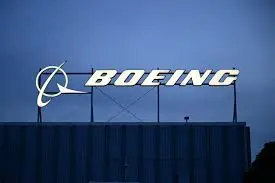

Boeing Union Workers Vote to Accept New Contract, End 7- Weeks of Strike
Boeing Union workers on Monday agreed to a new contract proposal, ending a seven-week strike that has snarled the company‘s production lines and cost Boeing an estimated $50 million per day. The deal the union leaders struck last Thursday, which includes 38 percent in wages spread over four years and a $12,000 ratification bonus, signals a win for the Boeing workforce and the International Association of Machinists and Aerospace Workers (IAM).
Over 30,000 machinists had gone on strike after turning down a prior offer they said was too small – an increase of 25 percent that came up in September. This is for the fourth offer, and the result-because 59 percent of union members ratified the agreement, which is some kind of concession, given the long and contentious bargaining process.
Employees did not win a return of their pension program, which was lost well over a decade ago but did win major wage hikes and a big ratification bonus, which demonstrates this one of America‘s biggest unions‘ muscle.
A Long Fight for a Fair Share
The walkout began in September when Boeing employees voiced their discontent over a lack of wage increases, poor work environment, and loss of benefits, such as pensions. When the 25 percent pay raise proposal was insufficient, over 30,000 members of IAM Local 751 and W24 voted to strike, one of the most disruptive labor actions in the history of Boeing.
They rejected an offer in October that provided a 35% raise in wages, accompanied by a $7,000 signing bonus, without changing several items the union felt should be changed- retirement benefits are one of such issues.
They also rejected a 30 percent wage hike third offer after the negotiations had broken down at the table; it reveals the very contentious relationship existing between the two parties in the employment scene .
Boeing‘s final and fourth proposal, and one that it won by a narrow vote, contains the 38% wage hike and $12,000 signing bonus that would lure the workers back onto Boeing‘s production lines to end the strike. “This contract creates a new foundation to build on for the future,” said IAM Local 751 President Jon Holden in a statement released Monday night.
High Stakes and Financial Losses for Boeing
Consequently, the strike put it in a tight financial squeeze. As Bank of America estimates, the stoppage of production robbed the company of about $50 million revenue every day. Challenges were compounded further by other challenges the company faced during that period- delay in its 777X program, layoff of 10% of its workforce, and continued safety concerns. The production stoppages also had impacts on Boeing‘s supply chain.
It delayed delivery to waiting airlines and increased frustration among their customers.
Boeing Union Workers-
The strike underscored the importance of unionized labor in industries like aerospace, where highly trained machinists take key roles in assembling sophisticated aircraft. “This contract establishes a new benchmark for the aircraft industry,” said IAM international president Brian Bryant, who argued that aerospace jobs should be middle-class jobs and benefits. “This is telling the aircraft industry that aerospace jobs must be middle-class careers in which workers can thrive,” Bryant said.

A New Era Under Boeing CEO Kelly Ortberg
The deal is coming at a very critical time for Boeing, as the new chief executive Kelly Ortberg took the reins of the company in August. Ortberg is in a tough turnaround plan to make Boeing‘s culture and operational practices better. With his arrival coinciding with a safety audit and whistleblower complaints about quality issues, Ortberg has vowed to create a work environment centered on collaboration and excellence.
Or he said in a message to the employees, “we are all part of the same team. We will only move forward by listening and working together. There is much work ahead to return to the excellence that made Boeing an iconic company.”
Ortberg‘s message drives home the need for rebuilding trust between Boeing leadership and its workforce, especially following the disastrous period of safety incidents that resulted in production delays. Boeing had an uphill battle to fight its way back since last year when issues started piling up from a malfunction on the 737 Max and delays on the 777X program and several whistleblower reports pointing at lapses in safety.
Re-energizing the workforce and addressing quality issues will remain key determinants in retaining Boeing‘s supremacy in the aerospace industry.
Industry Implications and Road Ahead
The Boeing labor dispute is part of a wider trend in the American manufacturing sector, which is seeing more unions call for wage increases and improved working conditions. The IAM‘s wins can have far-reaching effects as its pay increase may galvanize other sectors to also make claims for reasonable compensation due to inflation and economic shocks. For Boeing, ending the strike will be important not only as a means of financial redress but also as a way of regaining normalcy at the production lines.
With the new labor agreement in place, Boeing should get back to working on the projects that are stalled because of the strike. The stoppage severely affected many components of the Boeing aircraft programs, primarily those in the Seattle area that heavily rely on the skilled expertise of the machinists. Reaching full productivity will be able to help Boeing meet the demands of their customers, mainly airlines who are experiencing a scarcity of aircraft.
This also calls for a thin line to be drawn between cost-cutting and keeping the morale of the workers high. Boeing, like many other firms in the aerospace industry, faces the challenge of being profitable while at the same time meeting the needs of the employees. The willingness of the company to increase wages by 38% and offer a ratification bonus shows that it appreciates its workers and the need to keep the morale of the skilled labor force high.
Looking Forward to a New Future
The IAM agreement with Boeing can be an example for other manufacturing industries, in which labor unions are gaining strength in seeking higher wages and better benefits. The end of the strike means a new opportunity for Boeing, clearing the backlog of production, meeting the orders from customers, and regaining confidence.
Although the seven-week strike raised significant financial pressures, the agreement indicates a fresh start for Boeing and its employees. This shift towards cooperation and a good labor agreement provides the ground for Boeing and its employees to work together to face the future challenges. Listening to the workers’ views and realizing their contributions should be valued as Boeing strives ahead to continue leading in the global aerospace markets.






